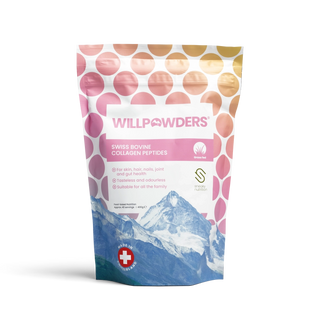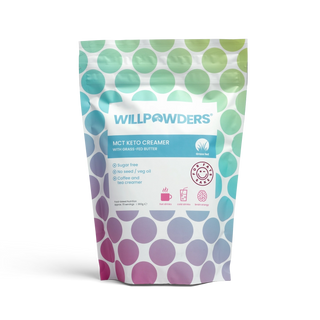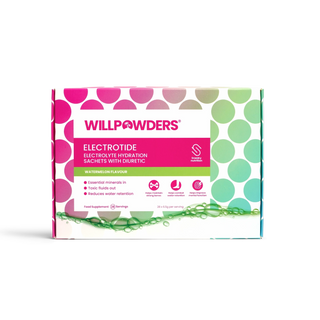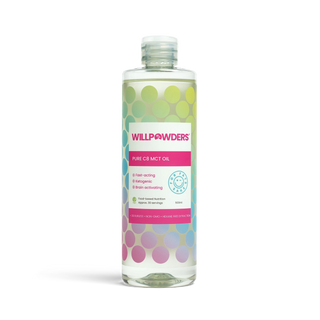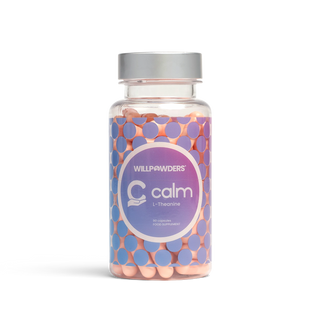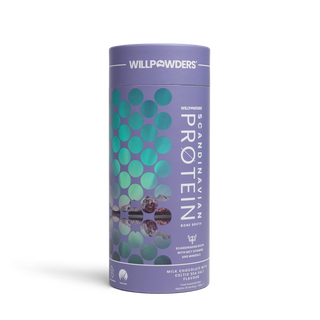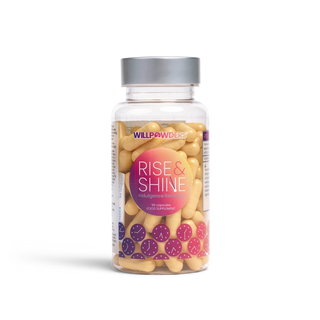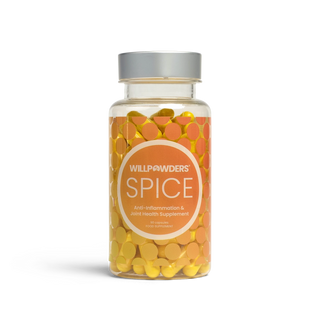
Hack Your Hormones
Protein Golden Balls and Protein Bollocks: Which is Which?
Now, at WillPowders, we do love a natter about protein along with the best of them. At the gym, around the workplace watering hole, on the sofa with the body conscious teen while you’re waiting for their umpteenth chicken thigh of the week to cook, we don’t really mind where the conversation’s happening. But, there does come a time when it comes to protein pronouncements that protein’s merit does need sorting from the myth.
At WillPowders, our belief is that the modern diet could benefit from taking its foot off the gas for carbohydrates and placing it instead on the protein pedal, after all, this forms part of our WillPowders Way. We’ve been giving due diligence to some of the current research truths about protein rich diets, their possible gains (hands up for muscle, for one) and losses (it could be weight loss, everybody) and a few possibilities in between (less meal frequency and more satiation, anyone?) for you.So, let’s play Myth or Merit!
Myth or Merit? One Size Fits All When It Comes to Protein Research
We don’t make the mistake of thinking that all our customers are choosing to use protein in the same way for the same results. So, yup, it’s a myth. That’s why we do our homework on a range of ways you might want to use our protein products as tools in your armoury. Joe from the gym isn’t Pip from pilates isn’t Alex from accounts. If Joe from the gym is resistance training several times a week and has increased protein intake after exercise, then Joe’s body is more than likely doing different things with amino acids than Alex’s whose main exercises are found in a mindfulness journal while drinking a protein shake. You get the drift - Alex probably isn’t thinking of drawing on the possible benefits of increasing muscle mass from upping protein intake after exercise [1] but Alex might well feel more satiated [2] than Pip who had a shedder of a night mopping up after a vomiting five year old and so practically inhaled (higher carbohydrate and dubious dodgy fat content included) a slab of chocolate fudge cake for breakfast [4] instead of enjoying a comforting cup of Award Winning Milk Chocolate Bone Broth Protein Powder.
Send Pip our way, poor thing, because hunger will likely be knocking on her door while she launders that third set of sheets very shortly. One study corroborated the findings of other researchers when it found, ‘Foods with a higher GI … are rapidly digested and absorbed and provoke a rapid increase in blood glucose, a fact that exacerbates hunger and favours hyperphagia, since these foods are unable to stimulate the mechanisms of satiety’ [*]. Hyperphagia? It’s a feeling of extreme, insatiable hunger. No one wants to wrestle with that particular bear, now, do they?
This is why it’s always worth pulling on your big, waterproof caving pants and going down the wormhole to read up for yourself if something sounds too good to be true or, worse, sounds truly off putting. We endeavour to bung in all our references so you can start your wider explorations here, if you’re that way inclined. Education, education, education, is key. Plus, any concerns, we reckon you’ll talk to your health practitioners, particularly if you’ve specific health concerns when it comes to upping your protein intake.
Science as a discipline needs to study specific subjects to get the fairest results in its research then compare results to control results and so on and so forth. This means that subjects in studies are often sorted into groups of likeness - age, healthiness or specific disease, gender and so on. You get the drift. In most cases, in the vernacular, cats amongst the pigeons skew results. By the same token, some studies use very small groups to test hypotheses. This sorting of the wheat from the chaff makes it a bit awkward to widen the conclusions of many studies on the powers of protein out to the general population. But it could be tempting to do so and it seems this is what underlies some of the myths that surround protein.
For example, research around the idea that lower protein intake acts as a protective measure against increased kidney damage in those who already have kidney disease won’t necessarily inform us of how healthy kidneys function with protein in the wider population of individuals who don’t have kidney disease. It’s a classic case of science needing horses for courses and a case of us later deciding if the cap fits and if we should be wearing it for our particular set of circumstances ...
Myth or Merit? Increasing Protein Might Aid Weight Loss
As we learn and we begin to question increasingly outdated thinking, and we get to re-know our bodies and what they need with more accuracy, plenty of us are trying to head away from the collateral damage that buying into the high carbs, lower fat baloney has meant for our externals like bums and tums and, more importantly, our internals like brains and guts. While we are all reclaiming our birthright of eating well for best nutrition and stopping feeling shit about eating fat, it often means stepping away from what has practically become an underlying addiction to sugar. Add to this the way, in the overwhelm of modern life, our bodies can start to use sugar in an attempt to regulate our stress and it can all seem like a high mountain to climb to try a new (WillPowders) way. But, it doesn't have to be - we promise. That over reliance on sugar is probably the biggest culprit when it comes to weight. But what if we could begin to counteract with some carefully curated amino acids (which form your body proteins) and good fat foods?
Protein potentially supports weight loss. Don’t just take our word for it, here’s some highlights from an article in the ‘Journal of Obesity and Metabolic Syndrome’ [*]:
- ‘many clinical trials have shown that consuming more protein than the recommended dietary allowance induces weight loss and improves body composition regardless of total energy intake’;
- ‘HPD [High Protein Diet] was also observed to have long-term weight-loss effects and to prevent weight regain following initial weight loss’;
- ‘Clinical trials with various designs have found that HPD induces weight loss and lowers cardiovascular disease risk factors such as blood triglycerides and blood pressure while preserving FFM [Fat Free Mass]’
- ‘Weight-loss effects of protein were observed in both energy restricted and standard-energy diets and in long-term clinical trials with follow-up durations of 6–12 months’.
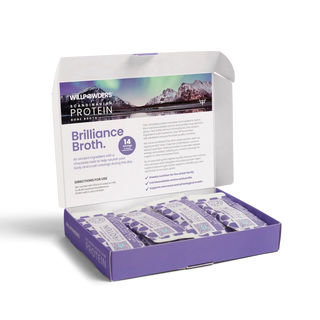

So, we’re digging protein now.
But, many of us could still believe that might involve three steaks for breakfast with a side order of raw eggs. Surely, by lunchtime, we could cut to the chase and fill in the forms to enter bodybuilding competitions wearing a show stopping thong? Fortunately, none of those things are necessary or, indeed, the case. (But we won’t judge if you still order up the thong, you know, for private use).
The truth is that we probably need to think more diversely about how we can add more protein to our diets to harness its potential for weight management but maintain variety and not end up cooking up a mixed grill dinner each evening.
We’d soon get bored of rustling up that butcher’s shop window of mixed meats, no matter how many novelty aprons we wore while doing it. Lentil protein, yes, bean protein, yes. Eggs? Check. But, it’s all sounding a bit ‘main mealy’ and downright savoury, right?
Luckily, evidence suggests that ‘protein powders offer a pragmatic way to meet increased protein needs while consuming minimal additional calories’ [*]. And while we don’t count calories at WillPowders, we are aware that they do add up when they come from free sugars. Plus, since modern myths about eating well have us hooked on carbs, a versatile and sweet tasting protein offers us that hedonistic and palatable variety our brains crave. No need to switch to carbs for pudding. You can be quite the bon viveur, sans the sucre, with a WillPowders Way Protein Powder. The protein comes from bone broth but the flavours come from nature’s treat cupboard. It’s all trés, trés bon(e)!
All in all, given a wide variety of modifications that protein adds to the way your body desires food and expends energy, it’s a big, fat set of Merit Points for protein’s potential with weight management.
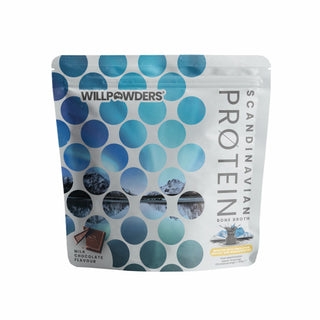

Merit or Myth: WillPowders brought a clean protein toolkit to the market
Course we did! Merits - ding, ding, ding! Like, that list alone sounds dreamy for supporting weight loss, right? So we:
- Harnessed the amino acids and macronutrients of Scandinavian bovine bone broth - who doesn’t love ancient nutritional values?
- Made sure it was phat by popping in some good fats in the form of grass fed butter and MCT Keto Creamer for ketogenic energy;
- Cooked up some natural deliciousness for your stash cupboard;
- Refused to add sugar but went for stevia for the sake of your blood sugars;
- Brought you three love you long time flavours of chocolate orange, vanilla and milk chocolate
- Switched it up with the odd limited edition guest flavour - catch them, if you can;
- And picked up the small (it’s huge) matter of a Nourish Award for our WillPowders Milk Chocolate flavour along the way;
Then we had a lie down. But, then, we had another brilliant idea, a world first kind of idea, in fact, because, well, you know, we’re like that:
- We made a Performance Protein Powder by lining up all our regular staple ingredients of milk chocolatey protein powder goodness then we …
- Added creatine monohydrate to support energy metabolism and a whole range of potential boons and, we didn’t stop there …
- In went shilajit, which could potentially support hormone levels and strength gains.
Myth or Merit? People with Sedentary Lifestyles Don’t Need to Eat More Protein
Well, let’s see, shall we? According to the article, Common questions and misconceptions about protein supplementation: what does the scientific evidence really show? [have a little read here ], ‘everyone (including sedentary individuals) must consume sufficient dietary protein. Protein serves a variety of important roles that are not exclusive to exercising individuals. In addition, the current evidence suggests that protein intake is the primary modifier of body composition (i.e. higher intakes may produce better body composition)’.
Now, we accept that with some concentration and careful planning, you could get all the protein you need from a well balanced diet. You could even stick another shrimp on the barbie or slam in the lamb then chow down on those bad boys, but, we also know that this is often not how people live.
While those self-righteous voices might get in your ear and poo-poo you adding additional protein into your diet through supplementation, what those detractors might be missing is that you’re a full-time everything, sandwiched between children and animals and ageing parents and a job and friends in crisis and a house and a partner whose effectiveness around said house means, on occasions, you could sometimes easily mistake them for one of your children. Frankly, sometimes, you’re just too plain f*cked to chant the full amino acid profile to yourself while you do the weekly forage around the supermarket. Besides, aren’t Leucine, Arginine and Proline the youth’s latest favourite Tik Tok influencers?
That same article goes on to highlight that many researchers question whether recommended daily amounts of protein that guidelines offer are high enough anyway [*]. Plus, the suggestion is that we should be questioning the quality of our protein intake, with poorer quality protein meaning that we probably need even more than we think we are getting. The amino acids that could go on to make proteins in your body from our Scandinavian Brilliance Bone Broth Powders come from the bones of cattle with some of the highest welfare standards in the world. They are grass fed. Grass. Their natural diet. ‘Nuff said.
In essence, then, topping up protein is seemingly in line with what the experts suggest. So, another merit for protein, even if sitting down is something you do very well indeed!
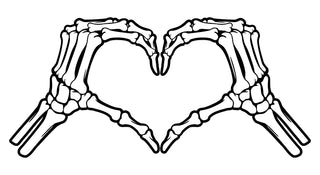

Myth or Merit? It’s oh dear for your kidneys and bones
It does seem like most of us don’t like to spoil a good story with the truth. Maybe this is why there are so many anecdotes about protein that seem to have become set in stone and entered the popular mythology surrounding protein with people sucking their teeth left right and centre if you say you’ve increased your protein intake. For example, the idea that higher protein intake damages kidneys and bones is still a prevalent misconception. For your delight and delectation and all around reliable information, according to research published in April 2024, ‘There is no evidence that consuming dietary protein harms the kidneys of otherwise healthy individuals’ [*]. And, not forgetting those bones, ‘There is no evidence that dietary protein has a harmful effect on the bones’ [*]. Also, ‘HPD has not been reported to have adverse effects on health in terms of bone density or renal function in healthy adults’ [*]. And just in case you’re still in doubt, we’ve referenced a lengthy old extract answering the myths on protein, kidneys and the liver in further reading [5]. Seems like a lot of organisations, countries and scientists have waded in and said no cigar, not even close, on this myth. Seems nice and clear, then: if you’re otherwise healthy, it’s a myth. Let’s move on and start reaping the potential benefits of protein, rather than pedalling made up doom and frightening ourselves in the process.
Now you know your myths from your absolute legends, and you’ll already have gathered that protein is one of our golden balls heroes in the WillPowders Way, you can decide if it’s time to crank up the protein in your day. We think it’s for the best!
Further Reading
- As reflected in sports nutrition recommendations, holistic evaluation of varied experimental designs suggests that coupling post-resistance exercise protein ingestion (~20–30 g or 0.25–0.30 g/kg) with habitual protein intakes at ~1.6 g/kg/d promotes favourable muscle adaptations to exercise training. [*]
- ‘Increased satiety is believed to be a result of elevated levels of anorexigenic hormones, decreased levels of orexigenic hormones, increased DIT, elevated plasma AA levels, increased hepatic gluconeogenesis, and increased ketogenesis from the higher protein intake’ [*] and ‘Increased satiety from protein intake is associated with elevation of blood amino acid (AA) concentration, hunger-inhibiting hormones, diet-induced thermogenesis (DIT), and ketone body levels’. [*]
- ‘Pasiakos and colleagues … demonstrated that a daily protein intake 2× and 3× greater than the RDA best maximizes fat loss in the face of a 40% energy deficit over a three-week period in a group of civilian male and female participants. In these situations, total energy intake is a critical consideration, and protein powders offer a pragmatic way to meet increased protein needs while consuming minimal additional calories.’ [*]
- ‘Modest increases in meal carbohydrate content at the expense of fat content may facilitate weight gain over the long-term by contributing to an earlier rise and fall of postprandial glucose concentrations and an earlier return of appetite’. [*]
- ‘Despite a plethora of studies demonstrating safety, much concern still exists surrounding the clinical implications of consuming increased amounts of protein, particularly on renal and hepatic health. The majority of these concerns stem from renal failure patients and educational dogma that has not been rewritten as evidence mounts to the contrary. Certainly, it is clear that people in renal failure benefit from protein-restricted diets [215], but extending this pathophysiology to otherwise healthy exercise-trained individuals who are not clinically compromised is inappropriate. Published reviews on this topic consistently report that an increased intake of protein by competitive athletes and active individuals provides no indication of hepato-renal harm or damage [216, 217]. This is supported by a recent commentary [134] which referenced recent reports from the World Health Organization [218] where they indicated a lack of evidence linking a high protein diet to renal disease. Likewise, the panel charged with establishing reference nutrient values for Australia and New Zealand also stated there was no published evidence that elevated intakes of protein exerted any negative impact on kidney function in athletes or in general [219]’ [5].
Recipes
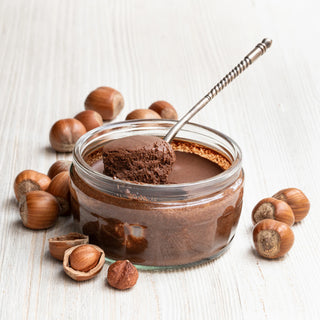
Cottage Cheese Chocolate Mousse
This super easy, quick, high in protein, choccy mousse is so creamy and such a game changer.
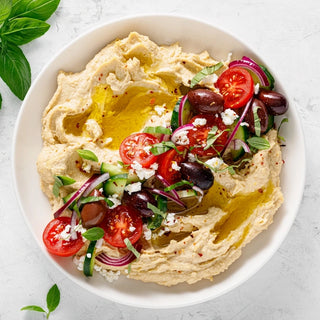
Hummus with MCT Oil
This deliciously pimped Hummus is high in protein, will keep you satisfied and fuel your brain with the goodness of MCT Oil.

